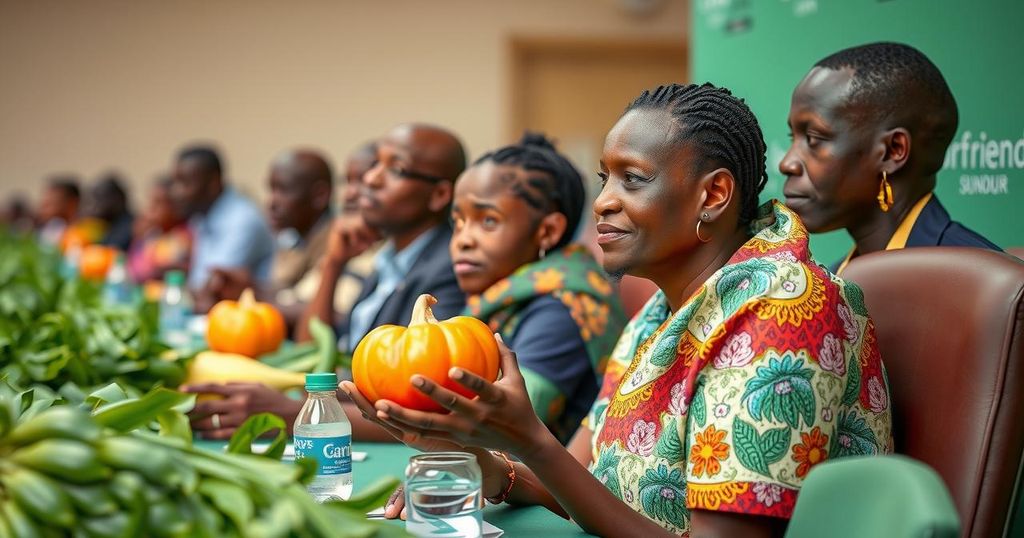The AU agriculture summit in Kampala focuses on sustainable farming and food self-sufficiency amid climate challenges. Ministers and delegates are addressing rising food prices and food insecurity intensified by conflict and climate change. A 10-year action plan will be proposed to adapt agriculture practices using modern technology to ensure stability in food production.
This week, the African Union (AU) convenes in Kampala, Uganda, focusing on sustainable agricultural practices amid escalating climate challenges. The summit gathers agriculture ministers and over 2,000 delegates to formulate strategies that ensure food self-sufficiency for the continent. With food prices soaring due to adverse weather events and conflict, the discussions aim to adapt farming techniques to contemporary technological advancements and climate realities, alongside a prominent EU warning regarding unprecedented global temperature rises for 2024.
Africa’s agriculture landscape faces significant challenges driven by climate change, conflict, and the resultant food insecurity impacting millions. The AU summit serves as a crucial platform for African nations to come together to address these issues collectively and to strategize on resilient agricultural practices. As global temperatures continue to rise, the dialogue is imperative to safeguard food production and to enhance the continent’s agricultural capacity.
In summary, the AU agriculture summit in Uganda represents a vital endeavor to confront pressing challenges in Africa’s agriculture sector. The emphasis on developing a comprehensive 10-year action plan is a proactive step toward achieving food self-sufficiency. By fostering collaboration among member states, the AU seeks to adapt agricultural practices in accordance with climate realities, ensuring that Africa can meet its food production needs sustainably and effectively.
Original Source: northafricapost.com







